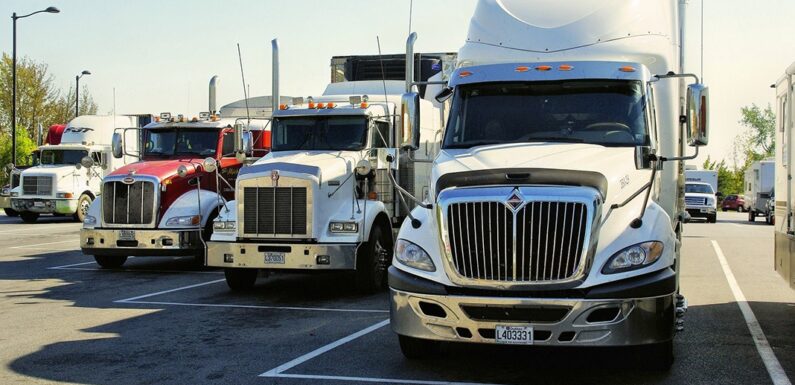
[ad_1]
Trucks are one of the most essential vehicles on the road today. From transporting goods to assisting in construction projects, trucks play a vital role in various industries. These powerful vehicles are designed to handle heavy loads and are known for their durability and reliability.
One of the main advantages of trucks is their ability to transport goods efficiently. Whether it is delivering products to stores or shipping items long distances, trucks provide a cost-effective and reliable solution. Their large cargo space allows for the transportation of a wide range of goods, making them an indispensable asset for many businesses.
In addition to their capacity for transporting goods, trucks are also commonly used in construction and other heavy-duty projects. They are equipped with powerful engines and sturdy chassis that enable them to navigate rough terrains and carry heavy equipment. This makes them ideal for hauling construction materials, machinery, and tools to and from worksites. Trucks make it possible for construction projects to be completed on time by ensuring the availability of necessary equipment and materials.
Trucks are also frequently used in agriculture. Farmers rely on trucks to transport crops, livestock, and equipment. The robust nature of trucks, combined with their ability to handle various terrains, makes them well-suited for rural environments where farm operations are carried out. Furthermore, trucks equipped with special attachments, such as trailers or tanks, can be used to spray crops, distribute fertilizer, or transport water for irrigation.
Another advantage of trucks is their versatility. Depending on the specific needs, trucks can be customized or modified to suit different purposes. For instance, flatbed trucks are commonly used for carrying oversized or irregularly shaped loads, while refrigerated trucks are designed to transport perishable goods at controlled temperatures. The adaptability of trucks allows them to serve multiple industries and meet specific requirements.
Despite their many benefits, trucks also face challenges. One major concern is their impact on the environment. Trucks, especially older models, tend to consume more fuel and emit higher levels of pollutants compared to smaller vehicles. However, advancements in technology have led to the development of more fuel-efficient and environmentally friendly trucks. Manufacturers are investing in research and development to produce cleaner and greener trucks, with many brands now offering hybrid or electric models.
Safety is another critical aspect related to trucks. Due to their size and weight, trucks require skilled drivers to operate them safely. Special licensing and training are often necessary to ensure that drivers have the necessary skills to handle these vehicles. Additionally, trucks are subject to stricter regulations and safety standards compared to smaller vehicles to minimize the risk of accidents on the road.
In conclusion, trucks are essential vehicles that play a crucial role in various industries. From transportation and construction to farming and logistics, trucks are versatile and reliable workhorses. Despite the challenges they face, such as environmental impact and safety concerns, trucks continue to evolve to meet the needs and demands of the modern world. As technology advances, we can expect to see trucks becoming more efficient, eco-friendly, and safer, further solidifying their position as indispensable vehicles in our society.
[ad_2]

